|
with Michelle Cameron  Today once again we began by reading the stories the children wrote – or revised – at home. One issue that I’m sensing is that – in their enthusiasm to write, which I’d never want to curtail – your young writers are writing A LOT and they love commenting on everyone else’s work. This is making it a challenge to listen to everyone’s story in the time we have. So this week I initiated a new rule – three children only can critique any one writer. Of course, we’ll rotate who gets to critique, so that everyone gets a chance to be heard. In addition, there may be weeks where we can only hear half of the stories. I hope not have to do this, but I do want to leave enough time for new prompts and give the children a chance to write in class. Among today’s stories, we identified a few more issues – as well as things the children are doing well:
 Building Worlds Our world building class was quite short because we only had about 15 minutes left after everyone read. The students were asked about particular aspects of life on Earth, and then told to compare them to life on their own imaginary world. Because I don’t believe they had enough time to really imagine the new world, I’m providing a link to a PDF of the form we used (HERE). Please look this over with your student and encourage them to dig a little deeper. Once they’ve done that, I’ve asked them to write a letter home from the world they’ve created, describing it. Some things to keep in mind as they write the letter:
I can’t wait to hear how they describe their worlds!
0 Comments
with Michelle Cameron Today we began by reading the stories the children wrote – or completed – at home. The enthusiasm to read was overwhelming and the stories were universally terrific. There’s a lot of great imagination and some terrific wordsmiths in this class. Before we started reading, we set down some guidelines for both reading and listening:
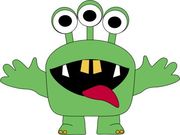 Building Character We then discussed that creating compelling characters are a critical part of any story. Each student was given a large sheet of paper and told to begin drawing a character. There were a couple of caveats about what they could and could not draw:
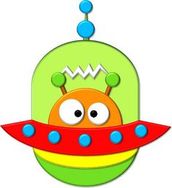 As the students drew their characters, I asked them the following questions:
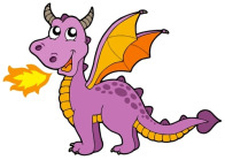 The last of these questions is where a story starts, and it should inform the entire narrative arc of a story. We talked about what Harry Potter wants (a family), and Dorothy of the Wizard of Oz (first to leave home but then to go home). The children then presented their characters to one another and – wow! – it was already time to end class. For homework this week, since we’re not back for 2 weeks, I asked them to do two things:
Happy Valentine’s Day and President’s Day weekend – see you all in two weeks! with Michelle Cameron 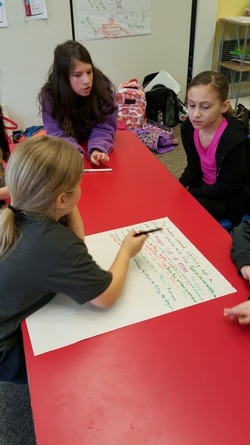 Team Dragons-Unicorns The dragon roared, belching out a plume of smoke and fire. The fire set the village on fire. The villagers ran in fright. The dragon let out a roar of triumph. But one brave villager turned around and went back to fight the dragon. With a mighty sweep of his tail, the dragon knocked the sword from his hand. Then the villager took a bow from his backpack. He hit the dragon and killed it. The dragon hit the ground with a “thud!” A unicorn emerged from the woods and thanked the villager for killing the dragon. At that moment, an evil wizard was testing his “life spell” and the magical wave hit the dragon and brought life to the dragon. The villager tried to hit the dragon but the evil wizard used his shield potion. The unicorn fought the wizard and destroyed the shield potion. And the unicorn turned its head and destroyed the dragon, too. The villagers thanked the unicorn, and they honored the unicorn for its bravery. Alternate ending: Or did they? With a mighty roar, the dragon spit a fire ball which destroyed the unicorn in a gory way. 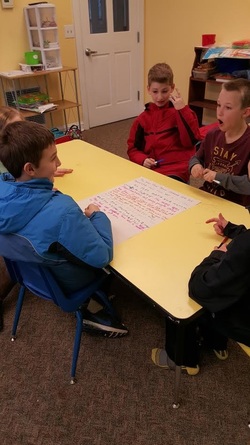 Team Aliens-Monsters The man from Mars climbed into his spaceship and few up into space. He left Mars and went to crash into Jupiter. His name was Zineycolzackaless but many people called him Ziney. Ziney’s spaceship ran out of fuel, then crashed into an alien-populated town called Allacka. The Mayor of Allacka was cruel to Ziney; he didn’t know what to do to Ziney and gave him a cheat trial, then put him in jail. The maid who brought him his food was named Lazelya. She started to like Ziney and she helped him out of jail. Now they had one problem: there was a monster guarding the jail door. Lazelya pulled out a laser bazooka. Then the monster saw them coming. Before Ziney and Lazelya knew it, the monster jumped on Lazelya. Ziney was so mad he grabbed the laser bazooka and shot the monster. The monster fell dead and Ziney grabbed Lazelya and they ran to Lazelya’s father’s spaceship. Lazelya stole her father’s spaceship. They climbed in and flew off. Then Ziney and Lazelya – at the same moment – kissed. At this point, each team was given the other team’s story, so they could pick out their favorite line. This line is the inspiration for their own story that they began writing toward the end of class time, which they are supposed to finish this week for homework.
Some suggestions for parents to help the writers finish their stories during the week:
|
Categories
All
Archives
May 2016
|

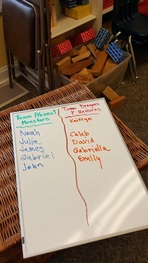
 RSS Feed
RSS Feed